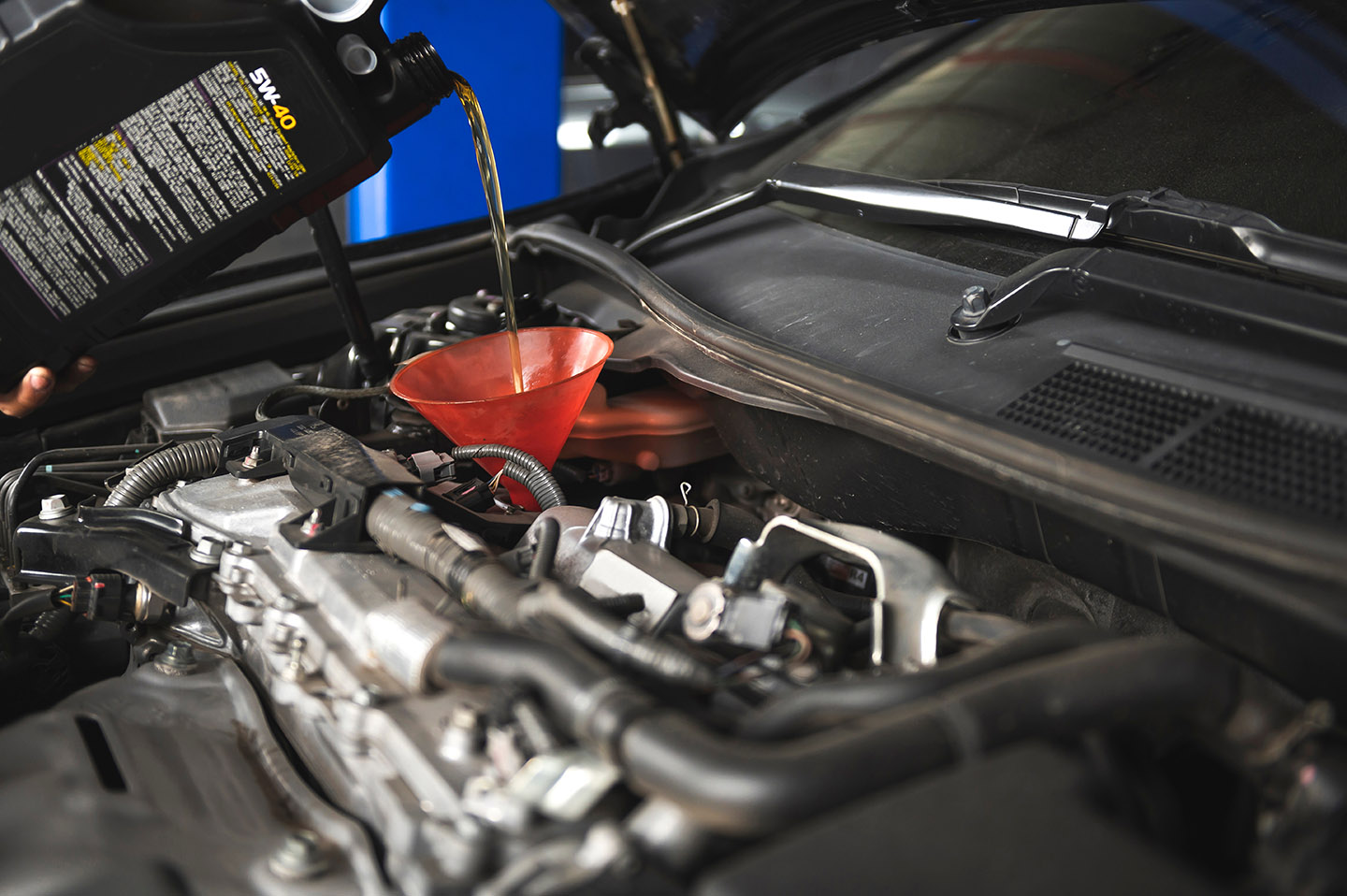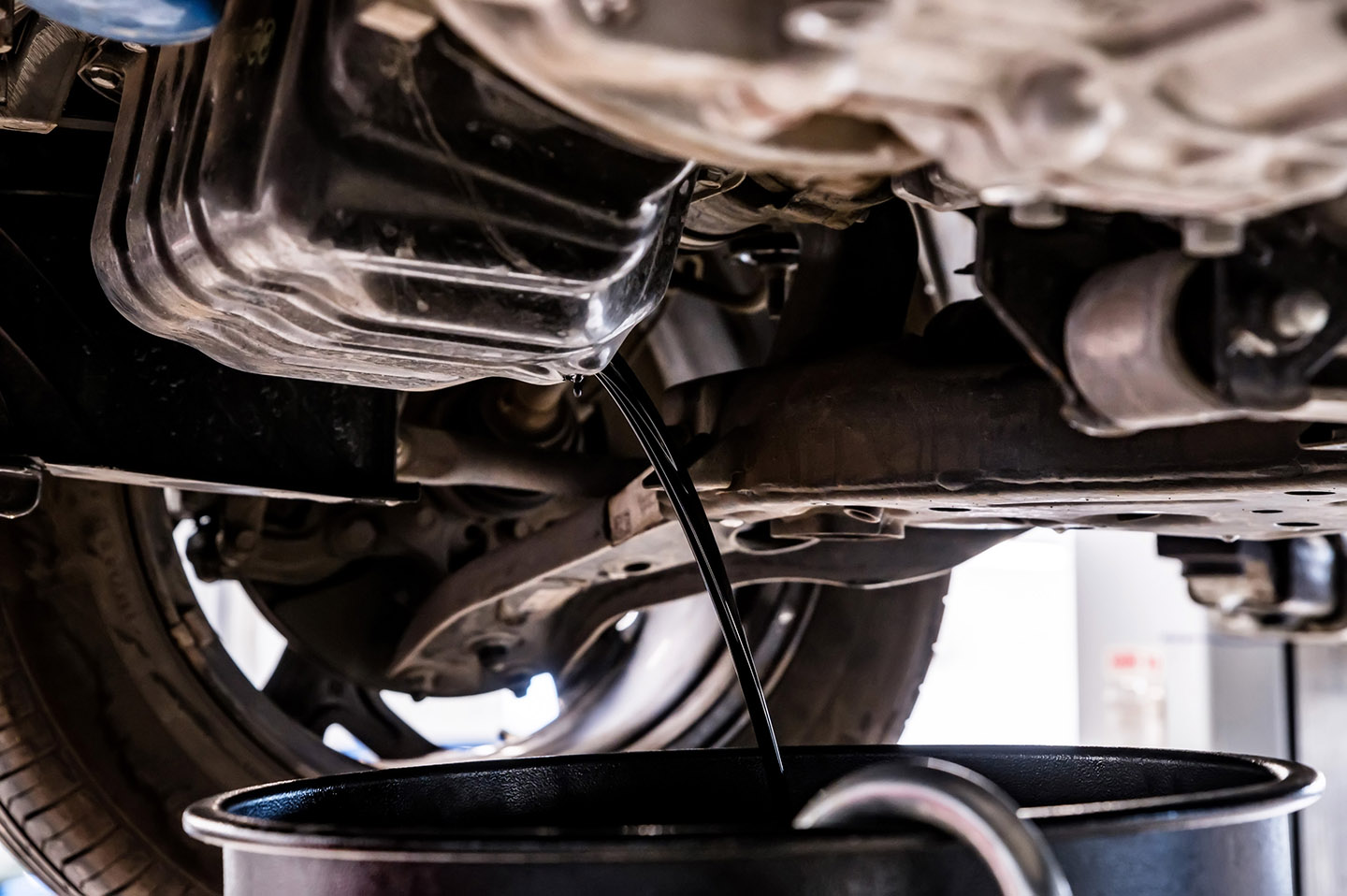How Often to Change Oil in a Diesel
Jun 7th 2022

You need to change the oil in your diesel engine every 7,500 miles or once every six months, whichever comes first. Changing the oil is one of the most effective ways to maintain your diesel engine. Oil is an essential lubricant that helps protect the engine from wear and tear. The fuel injectors and pistons in a diesel engine operate under immense pressure. The oil is pumped throughout the engine. The parts are then coated in a protective layer to ward off rust and structural damage.
Without a steady supply clean oil, the parts in your engine will eventually break down. The metal with crack and fracture, spilling fuel and oil into the engine. Use this guide to make sure you change your oil on time.
When to Change the Oil in a Diesel
The oil in your diesel engine will eventually lose its ability to lubricate the various parts of your engine. It fills with soot and other debris that reduces viscosity. That’s why it’s best to change the oil every 7,500 miles. You might even want to change it more often if you do a lot of heavy towing or your vehicle needs repair. Even if you don’t drive your vehicle that often, the oil will still go bad after six months due to various chemical reactions. You need to change the oil at least twice a year to keep your engine clean.
Protect Your Oil with a Diesel Oil Cooler

Other Factors to Consider:
The 7,500-mile rule is only a rough estimate for how often you should change the oil in your diesel. Some drivers say it’s best to change out the dirty oil every 5,000. You might also be able to go longer than 7,500 miles without changing your oil and not damage your engine. Some can go up to 10,000 miles or more without noticing any detrimental effects. It all depends on what type of engine you have, how much you’re hauling and whether you’ve maintaining your oil system, including how often you replace your diesel oil filters.
- Driving Conditions
You’re in control of how and when you use your diesel vehicle. Bad habits behind the wheel like harsh acceleration and improper turbo use force the oil to work that much harder. The same is true for the terrain itself. Driving off-road, uphill or in extreme temperatures will also further strain the oil.
When you’re towing a heavy load, you basically double the weight of your vehicle, which means the oil has to work twice as hard to lubricate the engine. Shorter trips and city driving will also sap the quality of your oil faster than highway driving.
Find Replacement 7.3 Engine Oil Coolers Online
- Oil and Engine Type
Every make and model comes with its own oil change recommendations. Check your user manual to see what the manufacturer recommends. Older engines tend to operate less efficiently than new models and usually need more frequent oil changes as a result. The parts may already contain rust that will contaminate the oil.
- Replacing the Diesel Oil Filter
The oil in your engine is only as good as the rest of the oil system. Every diesel engine comes with an oil filter that is designed to filter out soot and particulate matter. These debris make the oil less efficient. You need to inspect the oil filter to see if it needs to be changed or cleaned.
Replace Your Diesel Oil Filters to Remove Contaminants and Debris

- Using an Oil Cooler
The oil will also get extremely hot in a diesel engine, especially when you’re hauling a heavy load. But excess heat can damage your engine. That’s why it’s best to maintain and replace your oil cooler over time. Most modern diesel engines come with a separate radiator that removes excess heat from the oil to reduce the overall temperature of the engine. The oil travels through a heat exchanger, which releases the heat into the atmosphere. This keeps the engine from overheating when the oil is working overtime.
Check your owner’s manual to see when the oil cooler needs to be replaced. The Ford Powerstroke 7.3 oil cooler is known for its durability to help you preserve your oil as long as possible. Find 7.3 oil coolers for your Powerstroke engine online.
Every diesel driver should know when it’s time to change the oil. Keep this information in mind to avoid damaging the engine.
